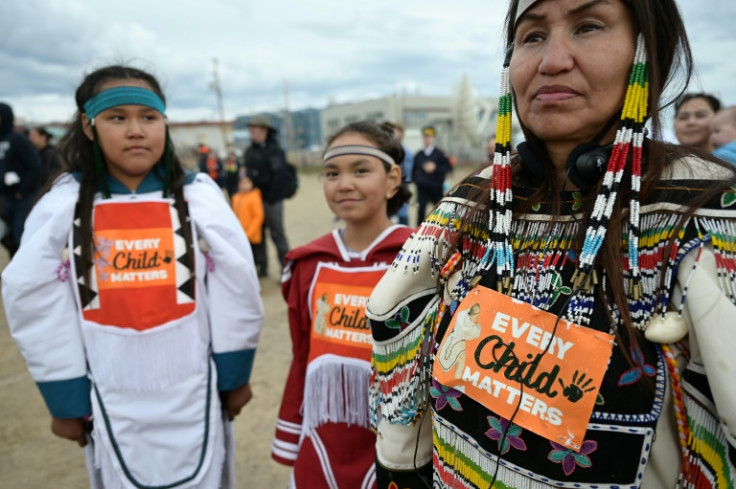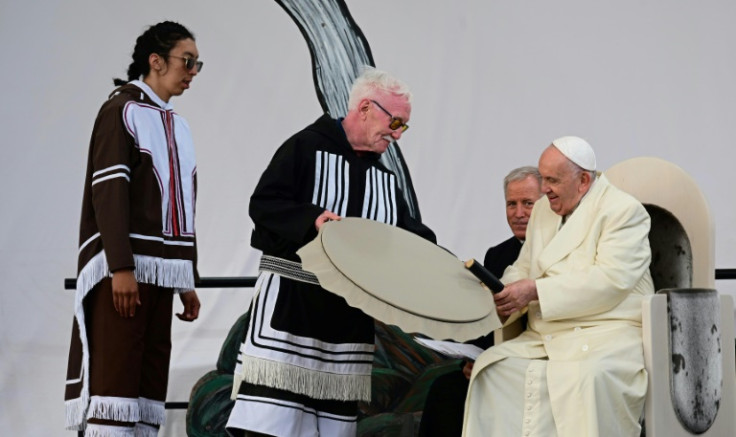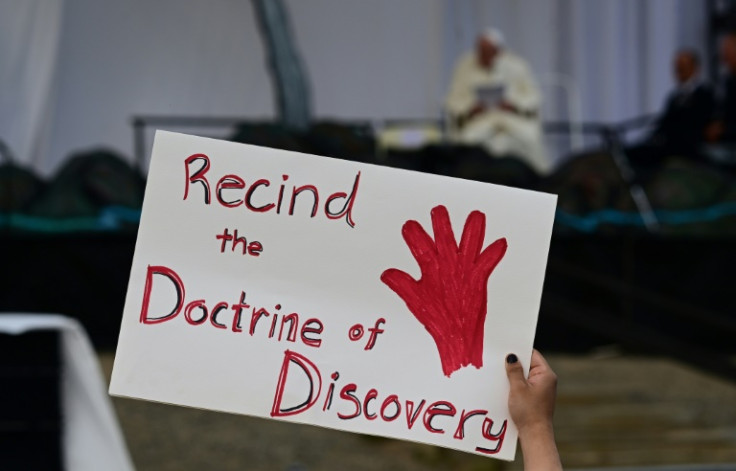Vatican Rejects Doctrine Used To Justify Colonial Abuse

The Catholic Church took a fresh step Thursday in acknowledging abuse endured by Indigenous peoples with the Vatican formally rejecting 15th-century papal edicts that empowered Europeans to colonise non-Christian lands.
During a trip to Canada last July, Pope Francis faced repeated calls to rescind the so-called Doctrine of Discovery, which was used to justify abuses against Indigenous peoples, mostly in the Americas, who were viewed as inferior.
In Canada, campaigners drew a direct link between the doctrine and decades of 20th-century abuse of the country's First Nations, Metis and Inuit people at Catholic-run schools -- described by Francis as "genocide".
Rejection of the papal edicts "is immense," said Canadian Senator Michele Audette, who is Indigenous, adding that "for many of us, we have been asking for it for decades."
In a joint statement on Thursday, two Vatican departments insisted that despite being based on papal bulls, the doctrine was "not part of the teaching of the Catholic Church".
They stated that "the contents of these documents were manipulated for political purposes by competing colonial powers in order to justify immoral acts against indigenous peoples that were carried out, at times, without opposition from ecclesiastical authorities".
One 1455 edict by Pope Nicholas V granted Portugal's king the right to "invade, search out, capture, vanquish and subdue all Saracens and pagans", according to the Canadian Museum for Human Rights.
"It is only just to recognise these errors, acknowledge the terrible effects of the assimilation policies and the pain experienced by indigenous peoples, and ask for pardon," the Vatican said.
It concluded: "The Catholic Church therefore repudiates those concepts that fail to recognise the inherent human rights of indigenous peoples, including what has become known as the legal and political 'doctrine of discovery'."
For nearly a century until the 1990s, Canada's government sent some 150,000 Indigenous children into Church-run residential schools, where they were cut off from their families, language and culture.
The goal was to stamp out their Indigenous identity. On top of the trauma of separation, many children endured physical and sexual abuse, and thousands are believed to have died of disease, malnutrition or neglect.
This "concerns all Indigenous people of the world", said Jean-Francois Roussel, professor at the University of Montreal's Institute of Religious Studies.
"This is probably the last chapter in the era of words. Now action must follow," he said, referring to financial compensation, support and cultural revitalization projects that he said must be strengthened.
In Canada last year, Francis begged forgiveness for the abuse.
And he said that "never again can the Christian community allow itself to be infected by the idea that one culture is superior to others, or that it is legitimate to employ ways of coercing others".
In a statement on Thursday, the Canadian Bishops Conference said it was "grateful" for the Vatican publication.
On the return flight from Canada, Francis described the treatment of children in the Catholic-run schools as "genocide".
"Taking away children, changing the culture, changing the mentality, changing the traditions, changing a race, let's put it that way, a whole culture," he said.


© Copyright AFP 2024. All rights reserved.





















